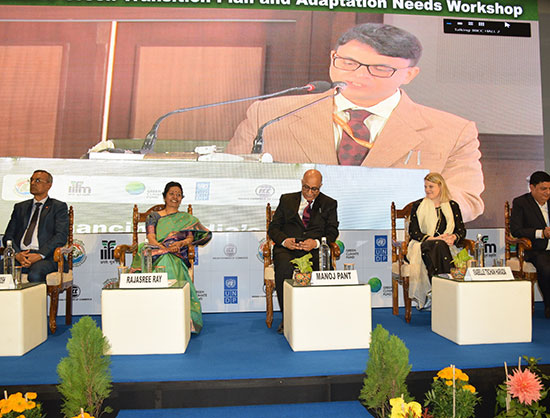Our Terms & Conditions | Our Privacy Policy
India Requires its Own Climate Finance Taxonomy for Green Transition: Economic Advisor, MoEFCC – Asia Pacific
To achieve low carbon and climate resilient growth, India requires a concerted approach around taxonomy, green guidelines, and financial products, as well as defining the roles of the private and public sectors and bankers and asset managers, stated Rajasree Ray, Economic Advisor, Union Ministry of Environment, Forest and Climate Change during a stakeholder consultation workshop on ‘Financing India’s Green Transition Plan and Adaptation Needs’, organised by the Ministry in Kolkata.
She also pointed out that the Budget presented for the year 2024-25 called for developing India’s own climate finance taxonomy to enhance the availability of capital for climate adaptation and mitigation. This will help India achieve its climate commitments and green transition.
A climate finance taxonomy is a system that classifies which parts of the economy may be marketed as sustainable investments. It helps guide investors and banks in directing trillions toward impactful investments to tackle climate change, she said.
Ray added that the challenging task and a clear opportunity for the Indian taxonomy would be to classify and identify adaptation and resilience measures, which may serve as a blueprint of action for other countries in the region and beyond aiming at unlocking both public and private sources of finance.
Ray also focused on Green Bank – a financial institution, public or quasi-public, that utilises innovative financing techniques and market development tools in partnership with the private sector to accelerate the deployment of clean energy technologies. In this context, she spoke of the Indian Renewable Energy Development Agency (IREDA) which promotes clean energy investments.
Dr Manoj Pant, Chief Secretary, Government of West Bengal stated that in today’s era, tackling climate change is not just an environmental agenda but it is also a development imperative for which additional financial resources are needed.
He said that the focus must be on scaling investments in ecosystem-based approaches, promoting climate-resilient agriculture, and enhancing infrastructure resilience. He further highlighted the importance of community engagement in climate change efforts and the need to collaborate and create decentralised, context-specific funding models.
The workshop is part of an ongoing effort to understand India’s climate financing needs and create awareness among stakeholders on the scale of mobilisation needed to accelerate investment in climate-resilient development in India. The workshop also focused on the imminent need to increase investment in climate adaptation.
The workshop also focused on understanding India’s climate actions with a focus on various financial instruments in its three technical sessions on ‘Financing India’s Green Transition Plan’, ‘Role of the Private Sector in Financing the Transition’, and ‘Financing Needs and Gaps for Adaptation Requirements’.
It explored the roles that government, venture capitalists, corporations, and industry leaders can play in India’s current climate ecosystem. Discussions pointed out strategies to boost financing in the climate-tech ecosystem, emphasising emerging solutions with disruptive potential.
Images are for reference only.Images and contents gathered automatic from google or 3rd party sources.All rights on the images and contents are with their legal original owners.



Comments are closed.